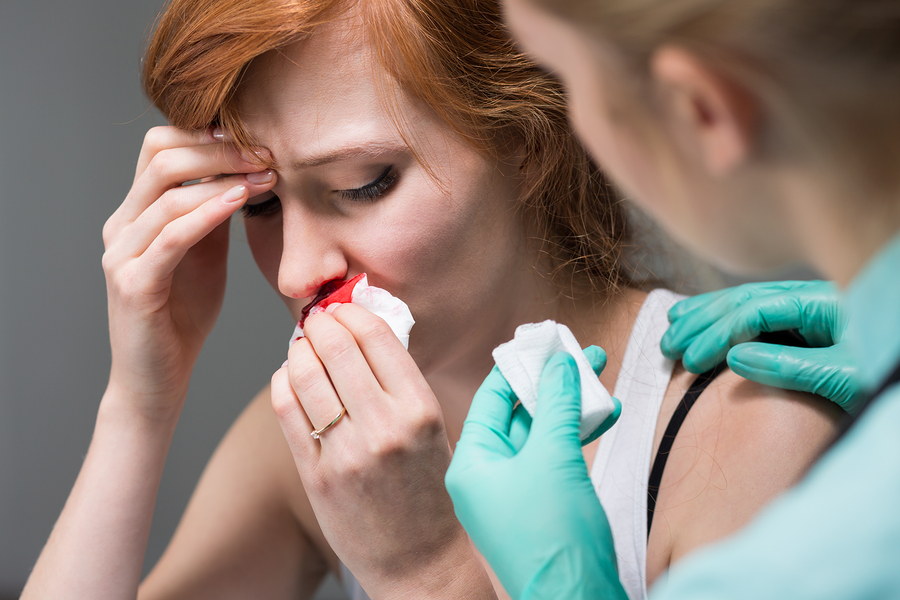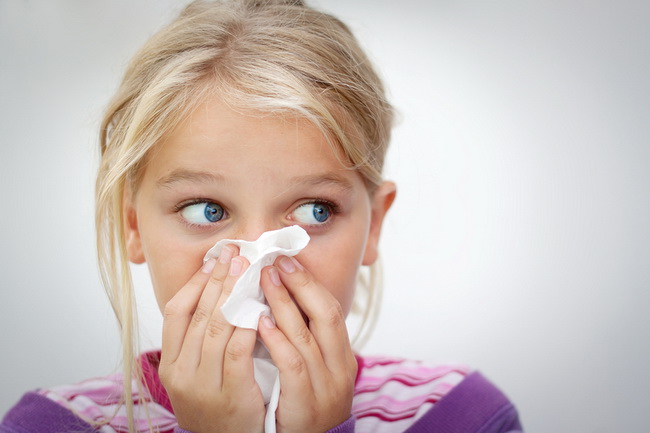- Make It Yourself Lavender Heart-Shaped Bath Bombs!
- 20 Things You Never Knew About “Down There”
- 12 Best Foods For Those Suffering From Arthritis Pain
- 12 Personal Hygiene Mistakes Almost Everyone Makes (Mom Never Told You About #4!)
- 15 Medicinal Plants And Herbs From The Cherokee People
- 12 Mind-Blowing Benefits Of Drinking Coconut Water During Pregnancy
- 12 Outstanding Winter Foods That Won’t Fatten You Up Like A Christmas Turkey
Frequent Nosebleeds? 4 Possible Causes And How To Treat Them

Photo credit: bigstock.com
Although nosebleeds are fairly common, when adults get them for no apparent reason, this can be cause for concern.
Of course, sometimes we get nosebleeds from bumping our nose on something, blowing our nose too hard, or an inflammation of the nose. Any of these problems can cause the vessels inside the nose to bleed.
But frequent nosebleeds can be a sign of something else. Keep reading and find out the 4 possible causes and what you can do about it.
1. Dry Air
Let’s face it, sometimes, it’s nothing more than some really dry air that tends to dry out the lining of the nose, causing it to crack open and bleed. Dry air can happen from indoor forced air heating, air conditioning, or even just very cold outdoor air. Try using a humidifier indoors and moistening nasal sprays when you go outdoors.
2. Health Conditions
Kidney disease, liver disease, the chronic overconsumption of alcohol or some other unknown health condition can lower the body’s ability to clot blood, which can cause nosebleeds. Other conditions such as high blood pressure or heart failure can cause a sudden, rapid increase in blood pressure that can cause your nose to bleed. This is usually accompanied with feelings of anxiety, shortness of breath, and a sudden, severe headache. If you experience any of these symptoms, please see your doctor ASAP to rule them out or to get treatment.
Of course, other things that aren’t so serious can cause nosebleeds including the common cold, allergies, and frequent nose blowing. All of these irritate the lining of the nose, causing it to crack and bleed.
Continue to Page 2

Photo credit: bigstock.com
3. Certain Medications
If you are consuming blood thinning medications, aspirin, and/or NSAIDS, all of these can cause nosebleeds. To prevent or stop a nosebleed, your blood needs to be able to clot easily. Any type of medication that changes your body’s ability to clot blood can not only cause a nosebleed, but it can make one difficult to stop. Common drugs known to cause nosebleeds include Plavix, Coumadin, and Jantoven. Never stop taking these medications until you have consulted with your doctor. Blood clots can lead to a heart attack or stroke and if you have a heart condition, you might need these medications, even if they cause occasional nosebleeds.
4. Picking or Scratching
Sometimes, accidental injury to the nose can cause nosebleeds. Although many children pick at their nose, occasionally, adults develop a habit of continually scratching or picking at their nose, or sticking tissues inside to scratch an itch.
You can stop a nosebleed at home fairly quickly by sitting down and leaning forward slightly. Pinch your nostrils closed with your fingers for at least 5 full minutes. When you release your hold, if the bleeding has not stopped, repeat for another 5 minutes. The blood vessels in the nose are very small and close to the surface. They can be easily sealed with some steady pressure.
If the nosebleed starts again fairly quickly, spray with a bit of nasal spray, such as Afrin or Dristan, to constrict the blood vessels, then try the pinching method once again.
When to Seek Help
Although nearly all nosebleeds can be dealt with at home, some can be quite severe and need medical intervention. If you are taking blood thinners and find that your nose will not stop bleeding, you need to see your doctor or go to the emergency room.
If you have more than one nosebleed per week, you should also talk to your doctor. Very frequent nosebleeds can mean you have a serious underlying health condition that needs attention.
READ ALSO: 10 Home Remedies For Stuffy Nose Relief
Also, if the pinching method we explained above does not stop your nosebleed after the second try, you should see your doctor or go to the emergency room, even if you are not taking blood thinners.
References:
































